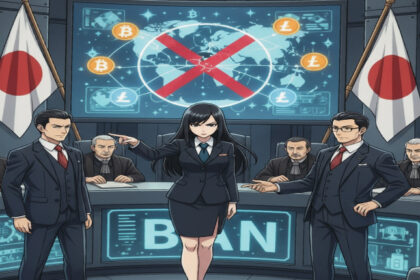Japan’s Rate Hike Signals End of Easy Money, Raises Stakes for Bitcoin
Japan's monetary transition examines the yen's function in crypto trades, implying broader…
Climbing Japanese Bond Yields May Disrupt Global Carry Trades and Crypto Markets
Japan’s decennial sovereign debt returns spiked to 1.86%, the highest recorded level…
By Hardik Z.
Japan’s FSA Plans to Require Liability Reserves for Crypto Exchanges
Digital currency trading platforms in Japan would be mandated to allocate specific…
By Hardik Z.
Paxos Launches USDG0 to Expand Its Regulated Stablecoin Across Multiple Blockchains
This novel omni-network asset introduces comprehensively collateralized USD solvency to Hyperliquid, Plume,…
By Hardik Z.
How Japan’s Crypto Insider Trading Ban Could Redefine Global Regulation
It is believed by commentators that Tokyo’s regulatory-first approach is creating a…
By Hardik Z.
Metaplanet Bitcoin Holdings Hit 20K, Poised to Overtake Strategy’s Position
Another 6.48 billion Japanese yen (roughly $112 million) has been invested by…
By Hardik Z.
Japan Wrote the First Stablecoin Rules, But the US Is Now Leading — What Happened?
“Japan prizes systemic stability above innovation speed, while the US is signaling…
By Hardik Z.







